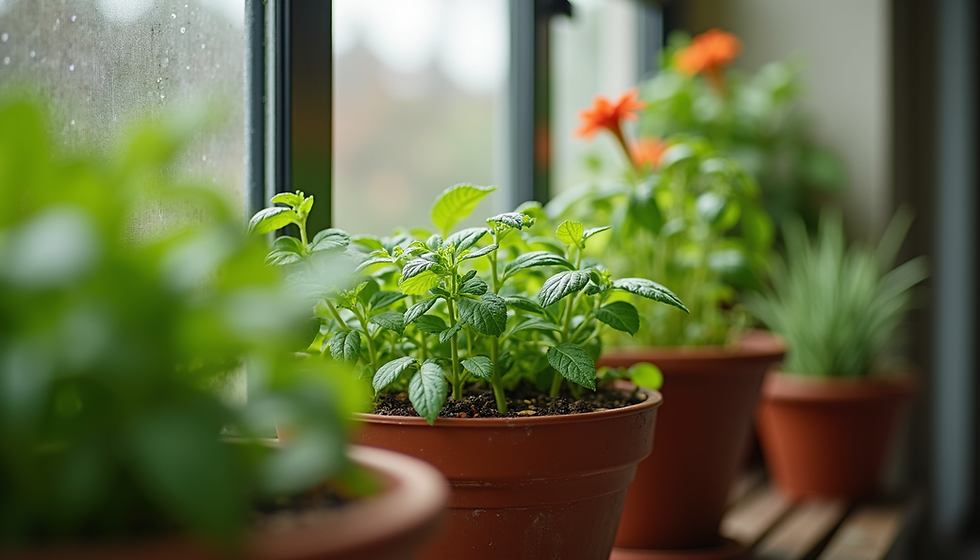Hibiscus infusion, properties: 8 reasons to have this herbal tea at home
- Myfarmdubai

- Nov 8, 2020
- 3 min read
Hibiscus sabdariffa (also called roselle or guinea sorrel) is the herb most often used to infuse hibiscus.
The calyces of the flower are first dried and then brought to a boil to make an infusion.
It can be eaten hot or cold, depending on one's preference.
Many traditional drinks are made from this plant.
Here we offer 8 reasons to make hibiscus infusion your favorite herbal tea !

8 reasons to have this herbal tea at home : https://www.myfarmdubai.com/product-page/fresh-organic-hibiscus-flower
1- Decrease in blood pressure :
Several studies suggest that hibiscus tea lowers blood pressure very effectively, even in people with health problems that increase their risk for high blood pressure.
A 2013 study found that hibiscus tea is used in about ten countries as a natural treatment for high blood pressure.
An important fact is that these results are confirmed in people with diabetes. In fact, one study found that after just 4 weeks, participants with diabetes had lower blood pressure when consuming hibiscus infusion daily. The recommended daily dose was 3 glasses.
2- Maintaining a good level of cholesterol and triglycerides :
Hibiscus can help people better balance their cholesterol and triglyceride levels.
One study showed hibiscus extract to be an excellent natural remedy for lowering cholesterol and triglycerides.
As with blood pressure, the effects of hibiscus on blood lipids also affect people with diabetes. Indeed, a 2009 study found an increase in good HDL cholesterol, and a similar decrease in bad LDL cholesterol and triglycerides when patients with diabetes drank hibiscus tea twice daily.
3- Prevention of oxidative stress :
Hibiscus tea is packed with antioxidants that fight oxidative stress caused by free radicals. This is due to the anthocyanins found in the plant, the natural pigments that give the flower its red color .
One study found that consuming hibiscus tea increased the load of antioxidants in the blood, and reduced the amount of compounds that contributed to oxidative stress.
4- Prevention of certain cancers :
Hibiscus is increasingly being studied in relation to its effects on cancer. A lab study found that hibiscus extract could kill leukemia cells.
The mechanisms behind this effect are not yet known, but the results are promising.
Similar results have been found in relation to stomach cancer.
5- Reduction of obesity and the risks that accompany it :
The antioxidants in hibiscus protect cells, but other compounds in this plant may also promote weight loss and minimize health problems associated with overweight and obesity.
There are several studies that have found a link between hibiscus tea and faster metabolism.
Hibiscus extract may even decrease the absorption of starch and sucrose after a meal.
Drinking hibiscus tea at least once a day can help fight insulin resistance, a common sign of pre-diabetes. Indeed, this infusion can help maintain a good blood sugar level in diabetic individuals.
Another disease linked to obesity is non-alcoholic fatty liver disease, an overload of liver fat unrelated to alcohol consumption. Studies have suggested that hibiscus tea is good for the health of the liver by preventing the build-up of fat in the liver which can lead to cirrhosis, liver cancer and hepatocellular failure.
6- Natural antidepressant :
Hibiscus tea is one of the natural remedies for depression, fighting against certain signs of depression such as fatigue, hopelessness, lack of motivation, etc.
This is a new area of research, but studies have shown that certain bio-flavonoids found in hibiscus flower may help it fight depression.
7- Remedy for staphylococcal infection :
Hibiscus rosa sinensis extract, one of the plants sometimes used to infuse hibiscus, has antibacterial properties, especially against Staphylococcus aureus.
8- Prevention of kidney stones :
Since hibiscus infusion is a diuretic, it is being studied in connection with the renal system and the urinary system.
A study found that this infusion would reduce the appearance of compounds involved in the formation of kidney stones.
Side effects and contraindications
Hibiscus tea is harmful to the liver if taken in very large amounts. However, the toxicity of hibiscus occurs at doses so high that it would be difficult to consume so much under an infusion.
It is generally recommended to consume between 3 and 8 cups of 225 ml per day.
The biggest problem is the effect of hibiscus tea on pregnant women. In fact, an infusion of hibiscus is emmenagogue, that is, it can cause menstruation.
This effect can potentially be beneficial for women with irregular periods, but can cause premature births when this drink is consumed by pregnant women. In general, it is also not recommended to consume it while breastfeeding.
We hope you found this article useful
See you soon





Comments